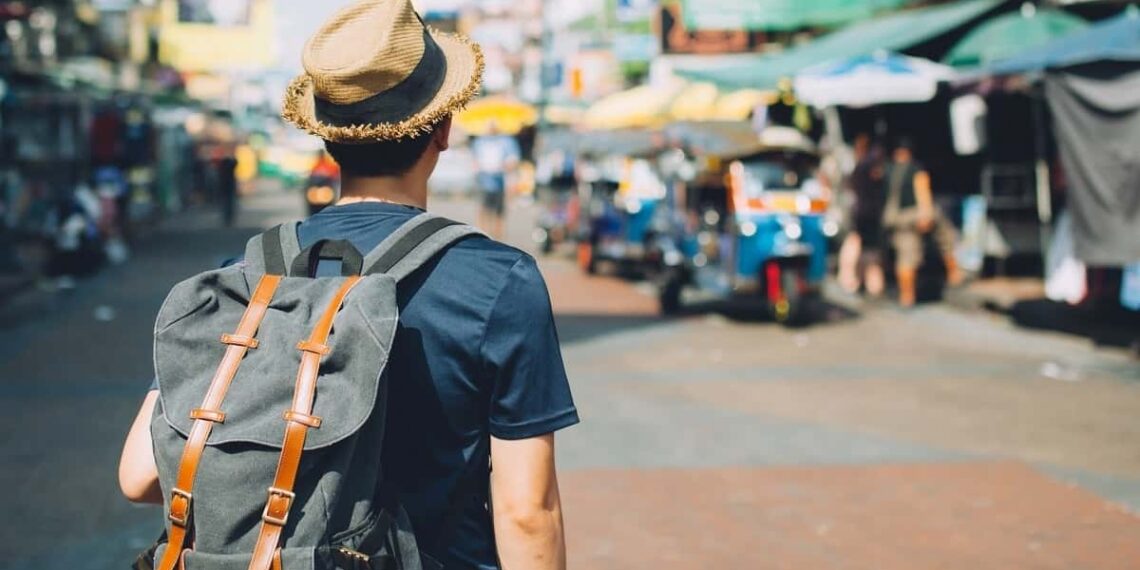Understanding Travel Insurance: What You Need to Know for Peace of Mind
Travel insurance offers financial protection against unexpected events during your trip. It’s designed to cover potential losses, ensuring a smoother and more secure travel experience.
| Coverage Type | Description | Average Cost (USD) |
| Trip Cancellation | Reimburses non-refundable trip costs if you cancel for a covered reason (e.g., illness, injury). | 5-10% of trip cost |
| Medical Expenses | Covers medical bills and emergency medical transportation if you get sick or injured while traveling. | Varies widely based on age, destination, and coverage level |
| Baggage Loss/Delay | Provides compensation for lost, stolen, or delayed baggage. | Included in comprehensive policies |
| Emergency Evacuation | Covers the cost of emergency medical evacuation to a suitable medical facility. | Included in comprehensive policies |
1. Why You Need Travel Insurance
Travel insurance provides a safety net when things go wrong. Unexpected events such as flight cancellations, medical emergencies, or lost luggage can disrupt your travel plans and lead to significant financial losses. Without insurance, you’re responsible for covering these costs out of pocket. Travel insurance offers coverage for these unforeseen circumstances, providing peace of mind and financial security during your trip. It’s especially important for international travel, where your domestic health insurance may not provide adequate coverage.
2. Types of Travel Insurance Coverage
Travel insurance policies typically offer a range of coverage options. Trip cancellation insurance reimburses you for non-refundable trip costs if you have to cancel your trip due to a covered reason, such as illness or injury. Medical coverage pays for medical expenses incurred while traveling, including doctor visits, hospital stays, and emergency medical transportation. Baggage loss or delay coverage compensates you for lost, stolen, or delayed luggage. Understanding the different types of coverage allows you to choose a policy that meets your specific needs.
3. Factors Affecting the Cost of Travel Insurance
The cost of travel insurance varies depending on several factors. These include the length of your trip, your destination, your age, and the amount of coverage you need. Policies with higher coverage limits and more comprehensive benefits generally cost more. Pre-existing medical conditions may also affect the price of your policy. Comparing quotes from multiple providers can help you find the best value for your money. Also, consider whether you need a single-trip policy or an annual policy if you travel frequently.
4. How to Choose the Right Policy
Selecting the right travel insurance policy requires careful consideration. Start by assessing your travel needs and identifying potential risks. Read the policy details carefully, paying attention to the coverage limits, exclusions, and deductible. Make sure the policy covers your planned activities, especially if you’re participating in adventure sports or other high-risk activities. Check the insurer’s reputation and customer reviews before purchasing a policy. Consider purchasing your policy soon after booking your trip to maximize your coverage period.
The Importance of Emergency Contacts: Staying Connected and Safe
Traveling involves excitement, but safety is paramount. Having readily available emergency contacts can provide reassurance and support during unexpected situations, ensuring a smoother and safer journey.
1. Why Emergency Contacts Matter
Emergency contacts are individuals you trust who can be reached in case of an accident, illness, or other unforeseen circumstances while traveling. They serve as a vital link between you and your loved ones, providing assistance, making informed decisions on your behalf, and offering emotional support from afar. Imagine a scenario where you lose your passport or encounter a medical emergency; your emergency contact can help navigate these challenges.
2. Who to Include in Your List
Select individuals who are reliable, responsible, and readily available. This might include family members, close friends, or even a trusted colleague. Consider those who know your medical history, insurance information, and travel plans. Ensure they are aware of their role and are willing to assist you if needed. Sharing copies of important documents like your passport and itinerary with them can also be beneficial.
3. How to Keep Information Accessible
Store your emergency contacts in multiple formats: on your phone, in a physical wallet card, and even in a secure cloud-based document. Clearly label the contacts as “Emergency Contact” and include their full name, phone number (with international dialing code), and email address. Make sure your phone’s emergency information feature is populated with these details, allowing first responders to access them even if your phone is locked.
4. Regularly Update Your Information
Before each trip, review and update your emergency contact list. People’s contact information can change, and you want to ensure that the details you have are accurate. Inform your contacts about your travel dates and itinerary so they are aware of when you might need their assistance. This proactive approach can significantly enhance your safety and peace of mind while exploring new destinations.
Solo Travel Tips: Navigating the World with Confidence and Security
Embarking on a solo adventure can be incredibly rewarding. However, prioritizing safety and security is paramount. Here’s how to navigate the world confidently and securely on your own.
1. Plan and Share Your Itinerary
Before you leave, meticulously plan your itinerary, including accommodation details, transportation methods, and planned activities. Share this itinerary with a trusted friend or family member back home. Regularly check in with them and update them on your whereabouts. Consider using a travel app that allows you to share your location in real-time with your emergency contacts. According to a 2024 survey by the Global Rescue, sharing itineraries is one of the most effective safety measures for solo travelers.
2. Stay Aware of Your Surroundings
Pay close attention to your surroundings at all times. Avoid distractions like constantly looking at your phone. Be mindful of potential risks, such as pickpockets in crowded areas or poorly lit streets at night. Trust your instincts; if a situation feels unsafe, remove yourself from it immediately. Research local customs and laws to avoid unintentionally violating them.
3. Secure Your Valuables
Protect your valuables by keeping them out of sight. Use a money belt or hidden pouch to store important documents, cash, and credit cards. Avoid displaying expensive jewelry or electronics. When staying in accommodations, utilize the safe provided to secure your passport and other valuables. Consider making digital copies of important documents and storing them securely online.
4. Choose Accommodation Wisely
Select accommodation in safe and well-lit areas. Read reviews carefully to assess the safety and security of the establishment. Opt for accommodations with 24-hour reception and security features. Before settling in, inspect your room to ensure all doors and windows are secure. Avoid opening the door to strangers and always verify their identity through the peephole.
5. Learn Basic Self-Defense
Consider taking a basic self-defense course before your trip. Knowing a few simple techniques can empower you to protect yourself in a dangerous situation. Familiarize yourself with local emergency numbers and learn how to call for help if needed. Carry a personal safety alarm that can attract attention if you feel threatened.
Choosing Secure Accommodation: What to Look For and Why It Matters
Selecting safe lodging is paramount for a worry-free travel experience. Prioritizing security features and locations can significantly reduce risks, ensuring peace of mind throughout your journey. Consider these factors when making your choice.
1. Location
Opt for accommodations in well-lit, populated areas with low crime rates. Research neighborhoods beforehand using online resources and travel advisories. Avoid lodging in isolated or known high-crime zones, even if they seem more affordable. Being close to public transportation hubs and emergency services can also enhance your safety.
2. Security Features and Policies
Inquire about the property’s security measures. Look for features like 24-hour reception, secure entry systems (key cards, codes), surveillance cameras in common areas, and well-lit hallways and parking areas. Check if the accommodation has a clear emergency evacuation plan and trained staff. Reading reviews from other travelers can provide insights into the actual security practices.
3. Room Security
Once inside your room, inspect the locks on doors and windows. Ensure they are functioning properly. Use the deadbolt and security chain when inside. Consider bringing a portable doorstop for added security. Keep valuables out of sight and utilize the in-room safe if provided. Never open the door to strangers without verifying their identity.
Q&A
Question 1: What are the key coverage types offered by travel insurance, and what are their average costs?
Answer: Travel insurance typically covers trip cancellation (reimbursing non-refundable costs due to covered reasons, averaging 5-10% of trip cost), medical expenses (varying widely based on factors like age and destination), baggage loss/delay (often included in comprehensive policies), and emergency evacuation (also usually included in comprehensive policies). Cost specifics vary greatly depending on the policy and provider.
Question 2: Why is it crucial to have emergency contacts while traveling, and who should be included on this list?
Answer: Emergency contacts act as a vital link to support and assistance in unexpected situations like accidents or medical emergencies. They can help navigate challenges, make decisions on your behalf, and offer emotional support. Your list should include reliable individuals who know your medical history, travel plans, and are readily available – family, close friends, or a trusted colleague are all good options.
Question 3: What are some essential safety tips for solo travelers, and how can they enhance their security while exploring new destinations?
Answer: Solo travelers should meticulously plan and share their itinerary, stay aware of their surroundings, secure valuables using money belts or hidden pouches, choose accommodation wisely in safe areas with security features, and consider learning basic self-defense techniques. Regularly checking in with loved ones and using location-sharing apps also significantly enhances safety.
Question 4: What factors influence the cost of travel insurance, and how can travelers find the best value?
Answer: The cost of travel insurance is affected by trip length, destination, age, coverage level, and pre-existing medical conditions. Higher coverage limits and comprehensive benefits increase the cost. To find the best value, compare quotes from multiple providers and consider whether a single-trip or annual policy better suits your travel frequency.






